Data Mining Tools
Overview
Data mining tools are software applications that use various statistical and machine learning techniques to analyze and extract useful information, knowledge, and patterns from large and complex datasets. These tools are designed to help organizations identify hidden patterns, relationships, and trends within complex data sets that would be difficult to identify through manual analysis.
Data Mining and Its Importance
Data mining is the process of discovering hidden patterns, trends, correlations, and insights from large and complex datasets. It involves analyzing data from various perspectives or angles and summarizing it into useful information that can be used to make better business decisions.
Data has undoubtedly become valuable for any organization worldwide. It has become paramount for them to analyze large volumes of data to drive business growth and gain competitive advantage. However, analyzing data is not easy. That’s where data mining comes into the picture. Data mining is critical for businesses looking to gain insights from their data and make informed decisions. By leveraging data mining tools and techniques, businesses can identify trends, improve customer satisfaction, streamline operations, predict future outcomes, prevent fraud, and personalize marketing efforts, which can help them increase profitability and gain a competitive advantage. Data mining is the backbone of any organization's business intelligence and data analytics.
Why Do We Need Data Mining Tools
Data mining tools are software applications that can perform the data mining process by using various statistical and machine learning techniques to analyze and extract hidden patterns, associations, and trends from large and complex datasets.
In today’s world, as businesses adopt cloud-based solutions, they generate terabytes to petabytes of data daily. It is very difficult to identify hidden insights and trends using manual analysis. That’s where data mining tools come into place. Data mining tools or applications are essential because they allow organizations to extract meaningful insights from vast amounts of data that would be impossible or very difficult to do manually. Below are a few of the reasons why any organization should go for a data mining tool -
- Improve decision-making - Data mining tools can help organizations make informed decisions based on the insights and patterns they discover in their data. By analyzing historical data, organizations can identify trends, patterns, and relationships that can help them make better decisions in the future.
- Discover hidden patterns - Data mining tools can reveal hidden patterns in the data that may not be apparent to the human eye. These patterns can help organizations detect anomalies, identify trends, and gain insights into customer behavior.
- Increase productivity - Data mining tools can automate the entire data mining and analysis process, saving time and increasing productivity. As these tools come with pre-installed and in-built libraries and techniques, businesses don’t need to develop sophisticated algorithms from scratch to perform the data mining.
- Identify opportunities - Data mining tools can help organizations identify new opportunities and markets they may have missed. By analyzing customer behavior and market trends, organizations can identify gaps in the market and develop new products and services to meet customer needs.
Factors to Consider When Determining Best Data Mining Tools
When determining the best data mining tools for your business, there are several factors to consider -
- Data size and complexity - Some data mining tools are better suited for analyzing large or complex data sets, while others work best with smaller ones. Consider the size and complexity of your data set while determining the best data mining tool.
- Ease of use - Consider the ease of use of the data mining tool. The tool should be user-friendly and easy to navigate. Some data mining tools require extensive programming knowledge, while others are more user-friendly and require less technical expertise.
- Compatibility with your data sources - Ensure that the tool is compatible with the data sources you are working with. Some tools may only work with specific data formats or databases.
- Programming languages - Consider which programming languages your programmers are comfortable with while determining the data mining tools for your business needs. Some data mining tools support Java, while many support Python and R languages.
- Support and documentation - Look for tools that offer good support and documentation. The tool should have a robust support system and documentation to help you troubleshoot issues and learn how to use the tool effectively.
- Performance and speed - Look for tools to quickly and efficiently process data. The tool should be able to handle large volumes of data without slowing down.
Best Data Mining Tools
In previous sections, we have covered what data mining tools are, why they are required, and what factors to consider while determining the best data mining tool for your business needs. Let’s explore some of the most common and popular data mining tools.
Orange Data Miner
Orange Data Miner is a popular open-source data mining tool that is designed for beginners and experts alike. It is an easy-to-use and flexible tool that can be used for a wide range of data analysis tasks, such as data preprocessing, visualization, and ML modeling. Its visual interface and extensive library of pre-built components make it easy to start data analysis, while its machine learning algorithms and data preprocessing tools make it suitable for more advanced data analysis tasks.
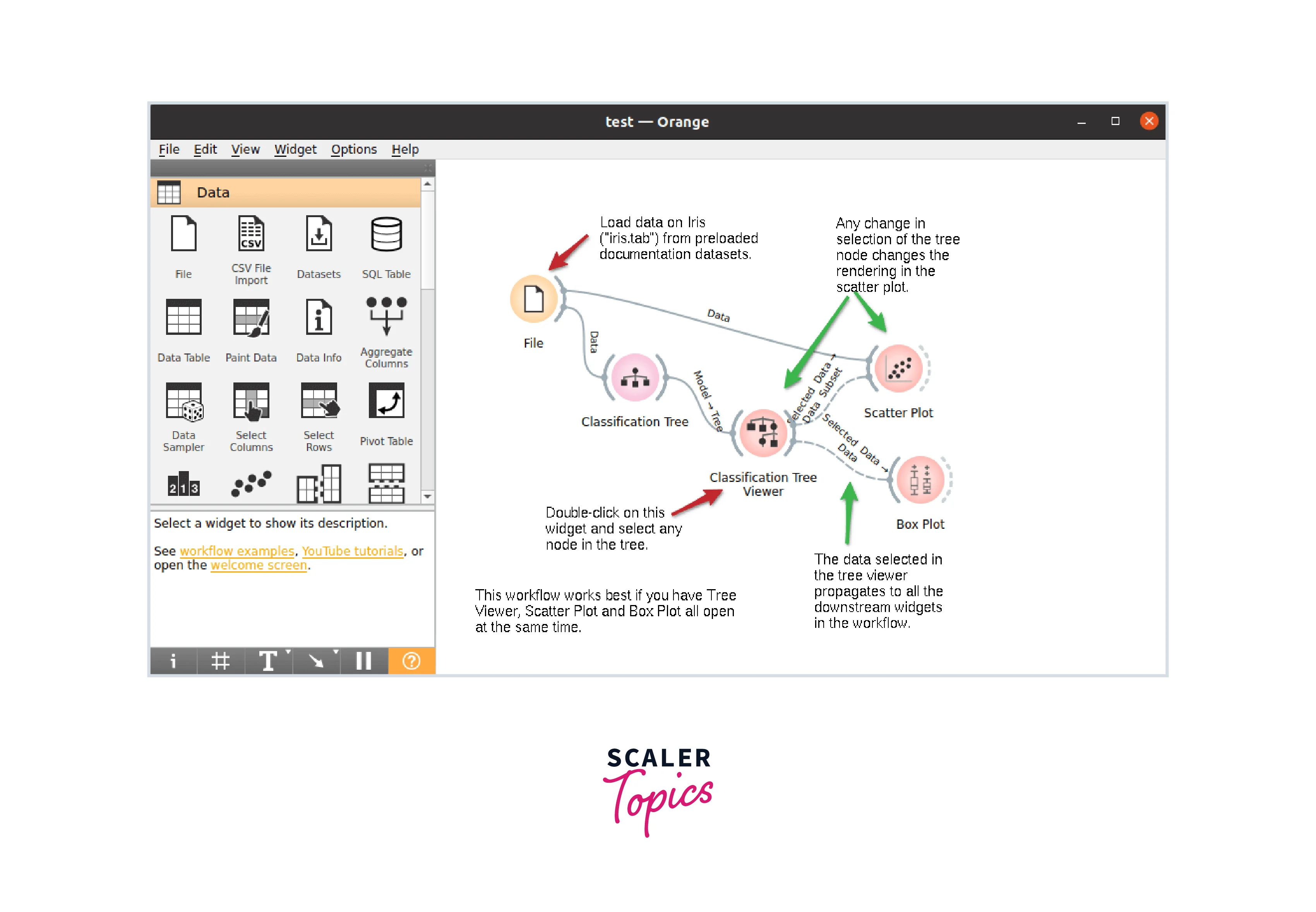
SAS Data Mining
SAS, which stands for Statistical Analysis System, is a leading provider of data analytics software, including data mining tools. SAS data mining tool is designed to help businesses and organizations extract insights from large datasets and make data-driven decisions. It is optimized for performance, security, and ease of use and can be easily integrated with other data analysis tools to extend their functionality. Some key features of SAS data mining tools include visualization, descriptive modeling, predictive modeling, prescriptive modeling, highly scalable modeling, etc.
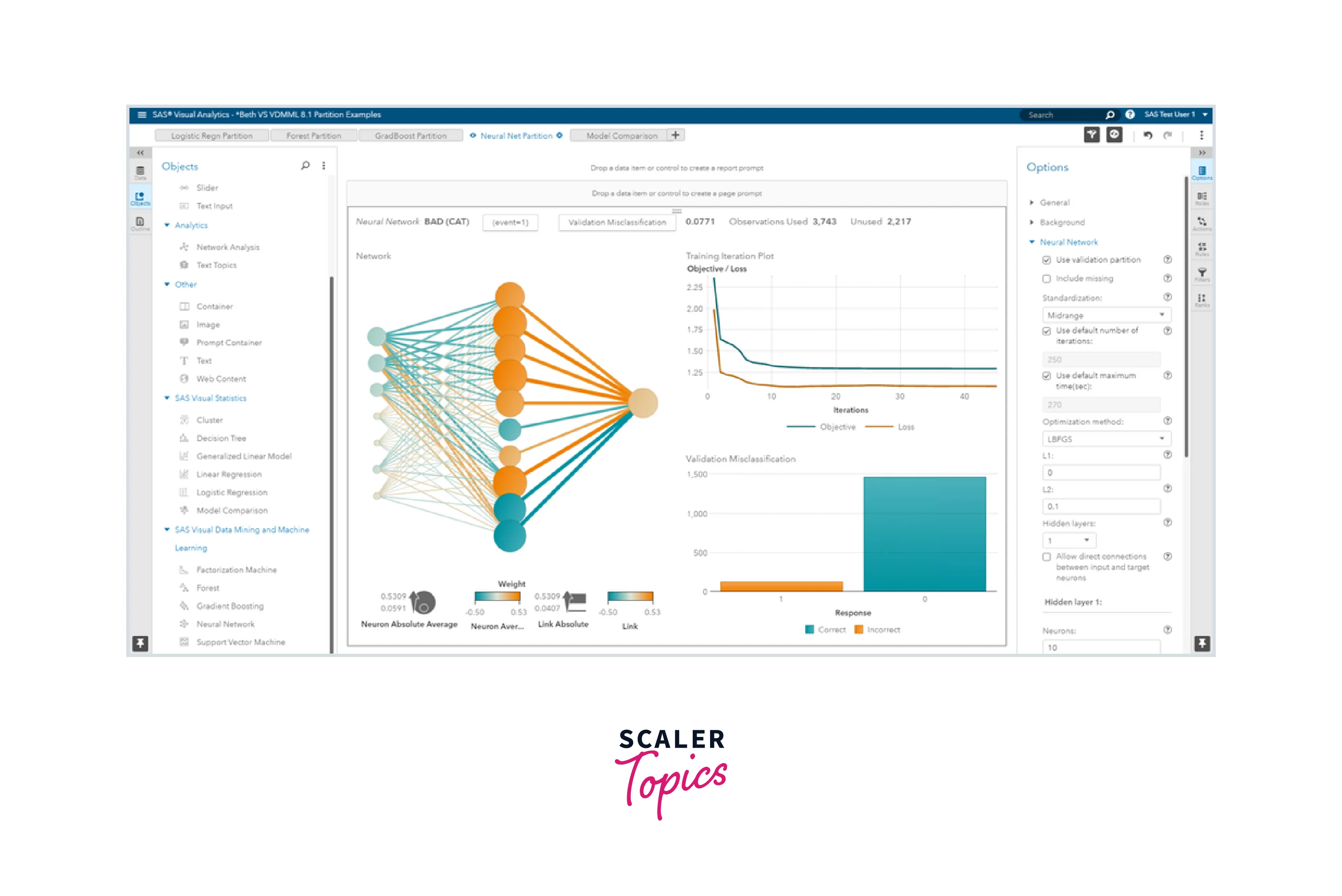
DataMelt Data Mining
DataMelt is an open-source data analysis software that includes a wide range of data mining tools. It is designed to be an all-in-one solution for data analysis, and it includes a wide range of features that make it useful for data mining tasks. It is also known as DMelt and is mainly developed for students, researchers, and scientists. It is developed in Java and can run on any OS compatible with JVM.
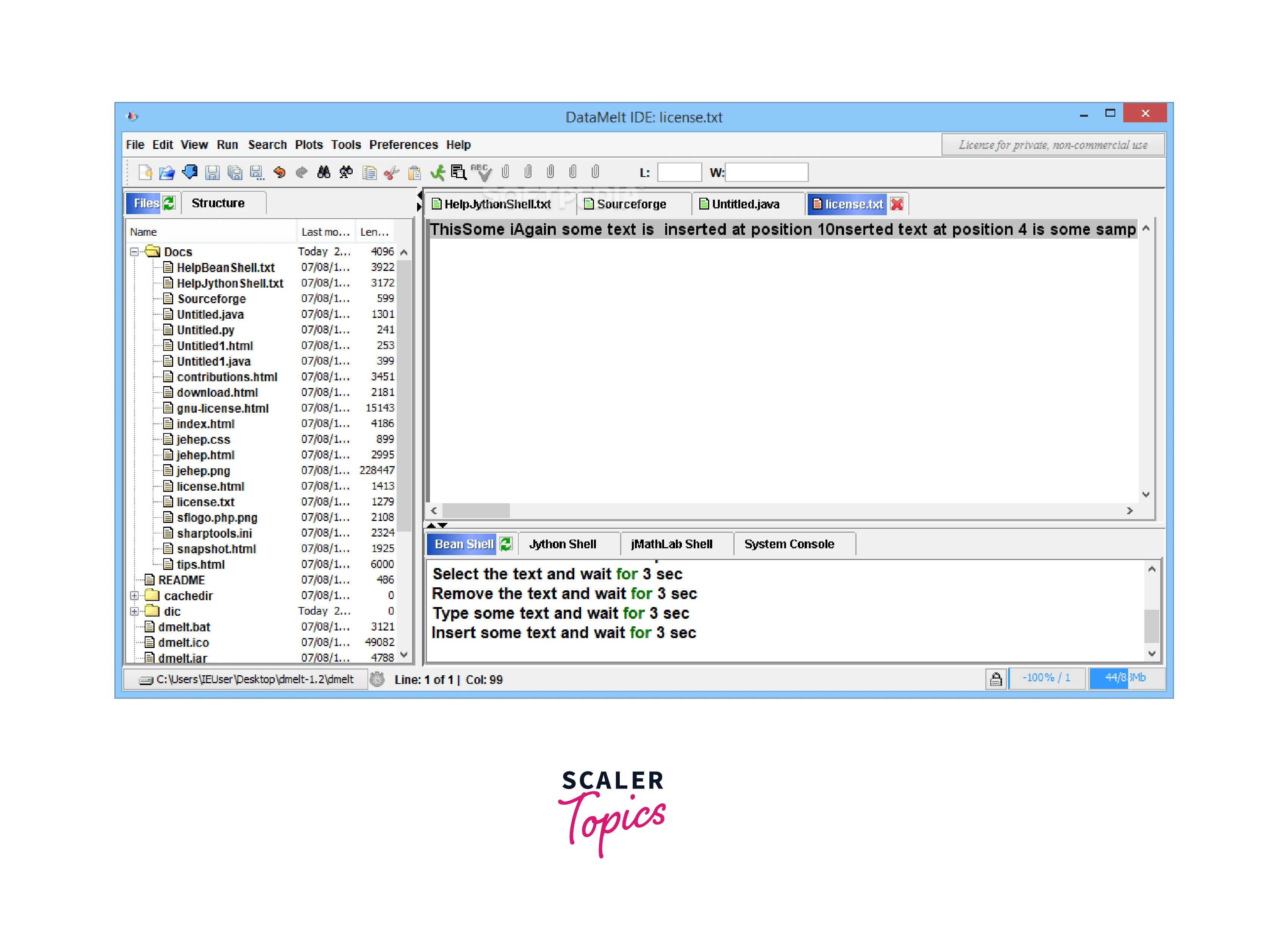
Rattle
Rattle is a free and open-source data mining tool designed to simplify data mining using the R programming language. Its graphical user interface makes it easy to perform data analysis tasks without writing code.
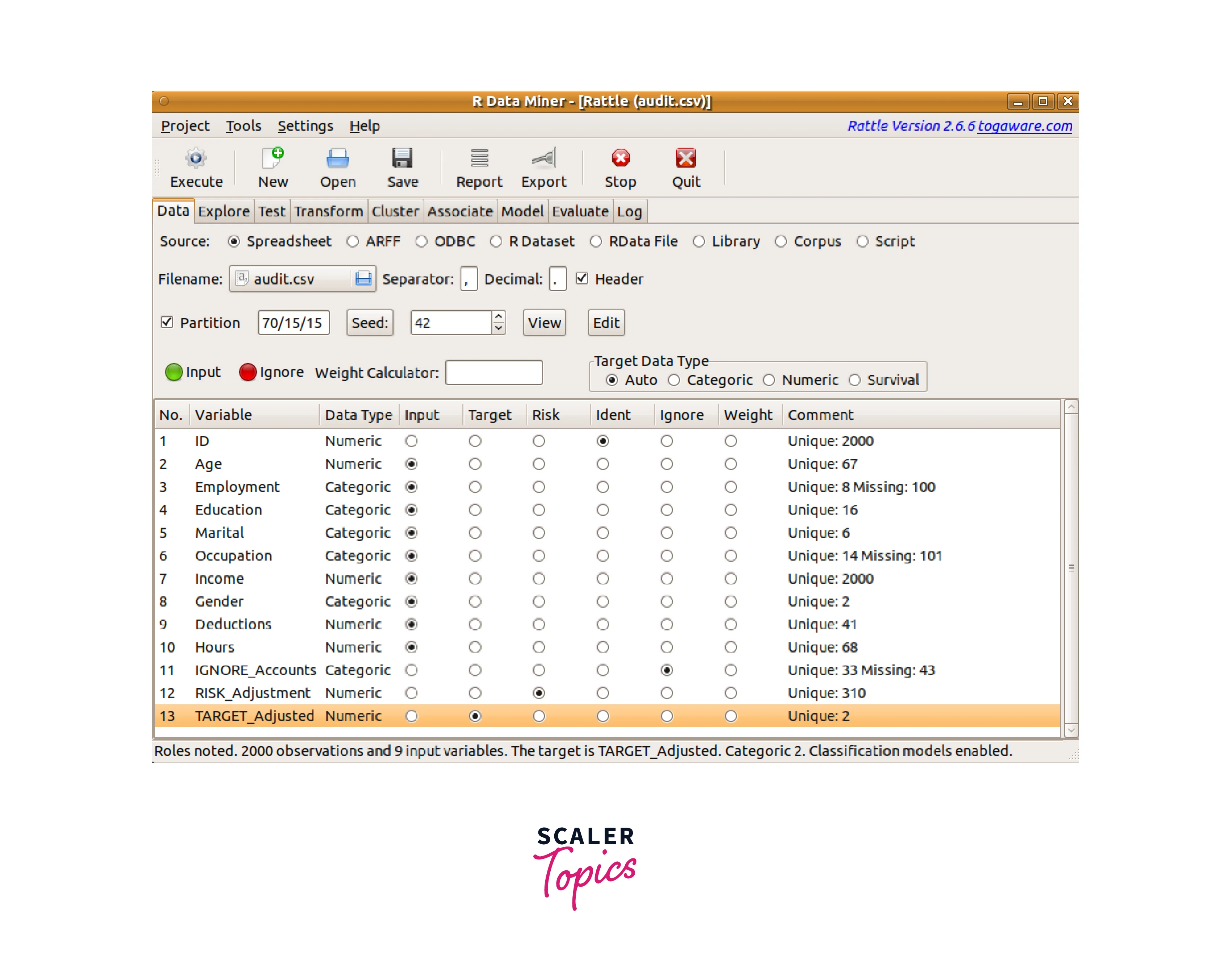
Rapid Miner
Rapid Miner is a powerful and flexible data mining tool that is designed to simplify the process of data analysis and predictive modeling. It is open-source software that includes a range of text mining, deep learning, machine learning algorithms, and data preprocessing tools. It is written in Java programming language and also provides R and Python extensions to tailor your data mining needs.
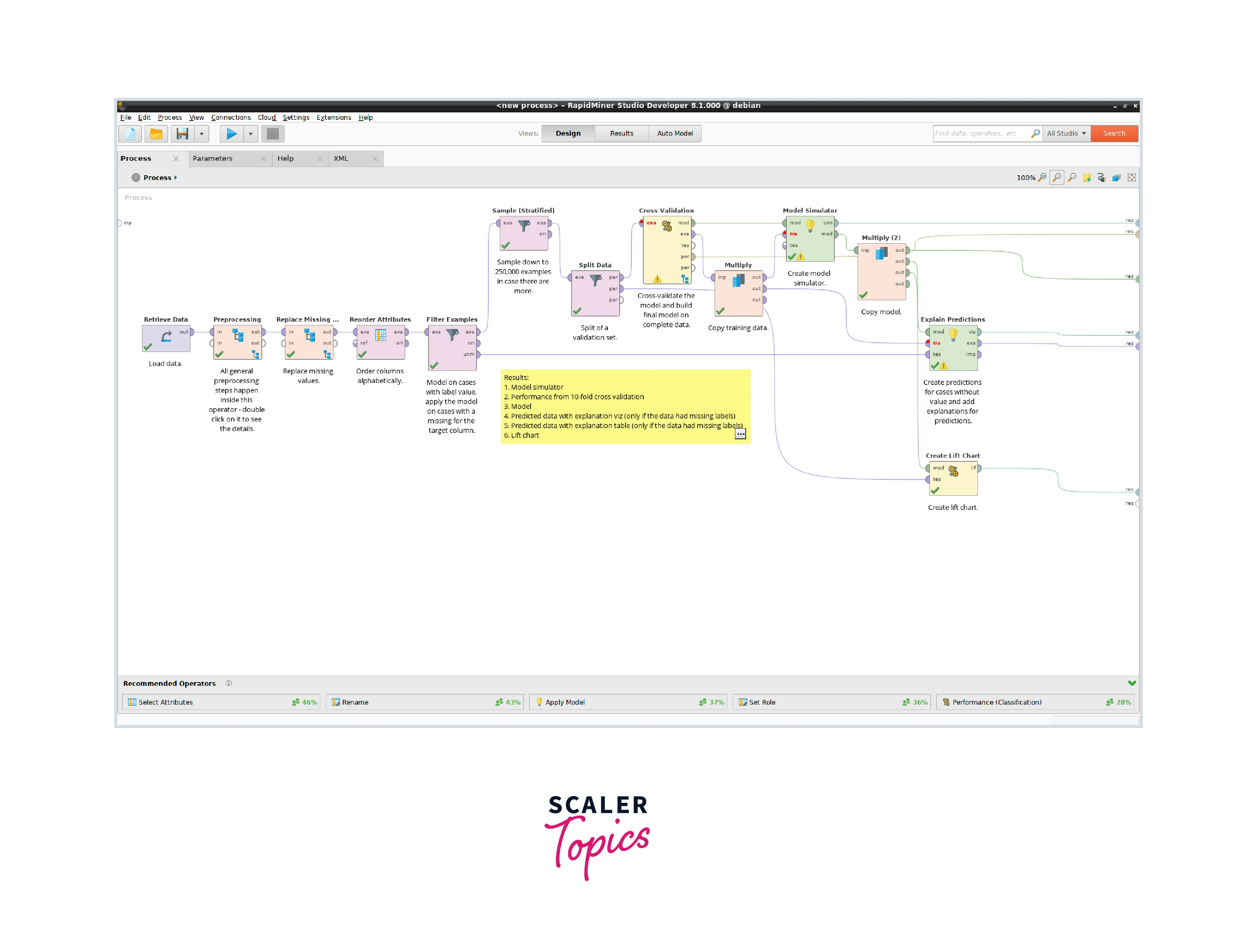
MonkeyLearn
MonkeyLearn is a cloud-based data mining tool specializing in text mining and uses machine learning algorithms to extract insights from unstructured text data. It is designed for businesses and organizations that need to extract useful information from large volumes of text data, such as customer feedback, social media posts, and online reviews. It comes with various in-built functionalities, such as sentiment analysis, topic modeling, named entity recognition, etc.
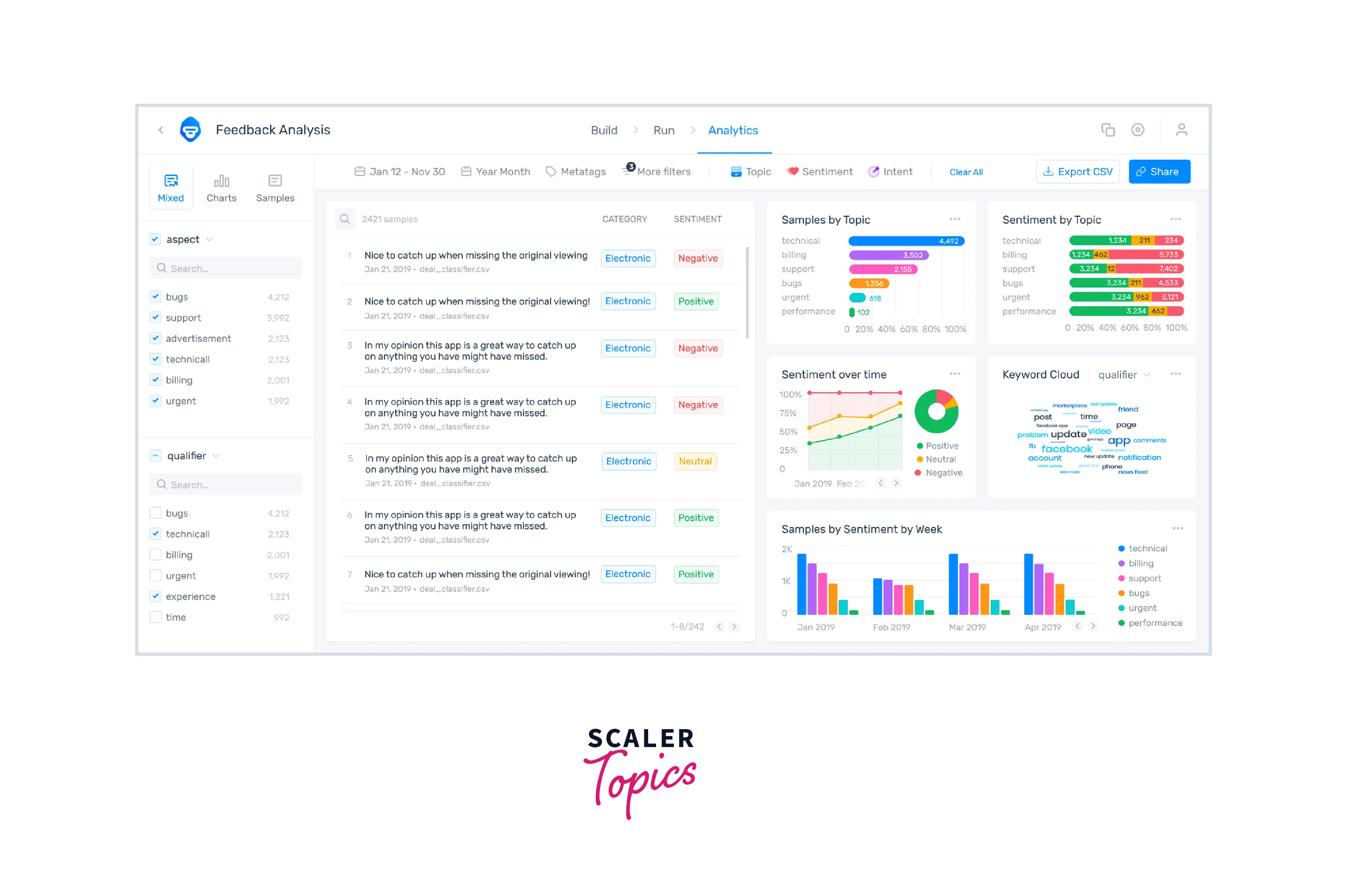
Oracle
Oracle Data Mining is a data mining tool that is integrated with Oracle Database. It allows users to build predictive models and perform advanced analytics on large datasets within the Oracle environment. It is a comprehensive data mining tool ideal for businesses that use Oracle Database and need to perform advanced analytics on large datasets. Its integration with Oracle Database, machine learning algorithms, and security features make it suitable for various data mining tasks.
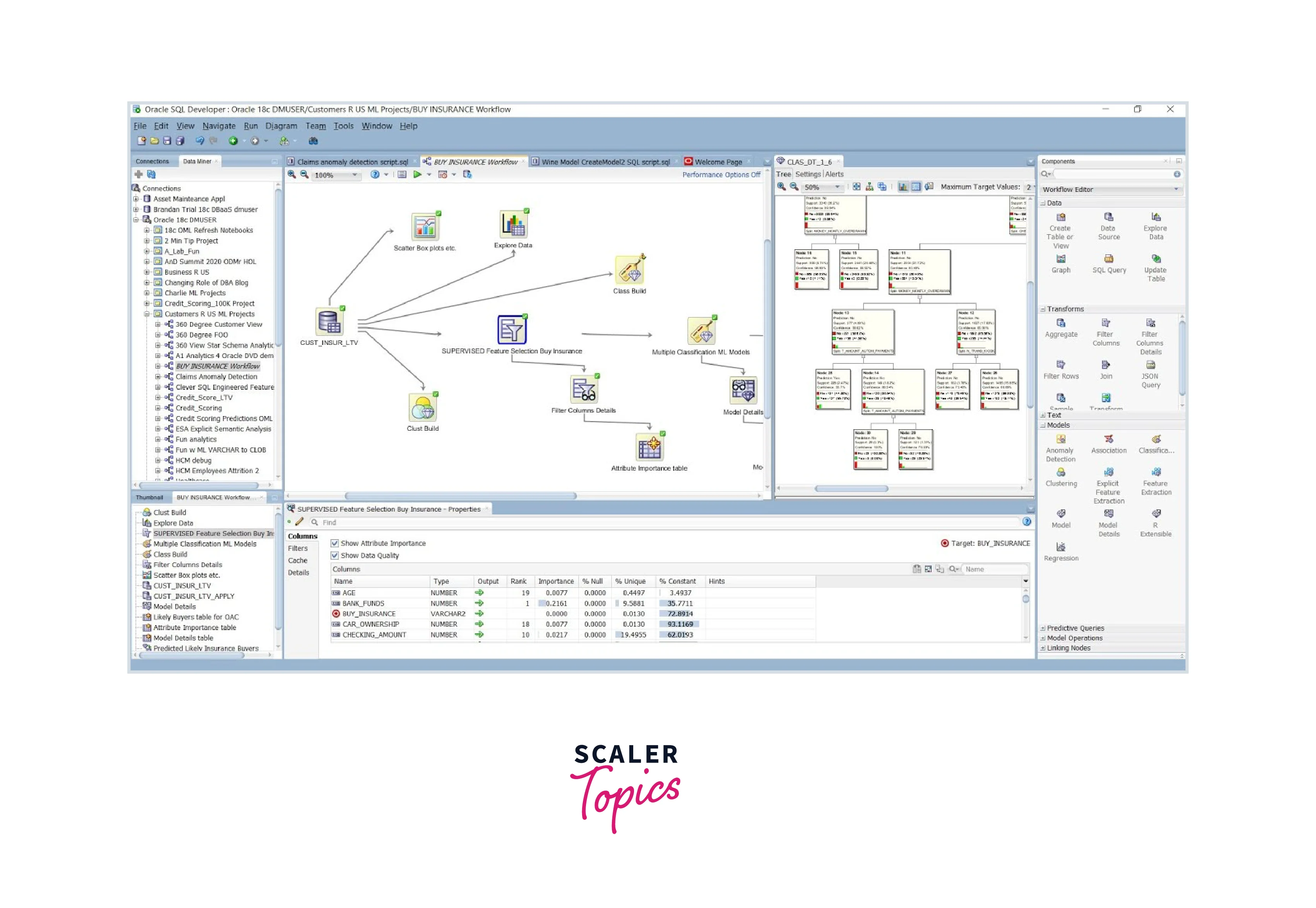
IBM SPSS
IBM SPSS (Statistical Package for the Social Sciences) is a data mining and statistical analysis software widely used by businesses, academic researchers, and government organizations. It provides a wide range of features and functionalities for data analysis, data mining, and predictive modeling. It is also suitable for users that have no or very little programming knowledge. To extend its functionality, IBM SPSS can be integrated with other software applications, such as Microsoft Excel and R.
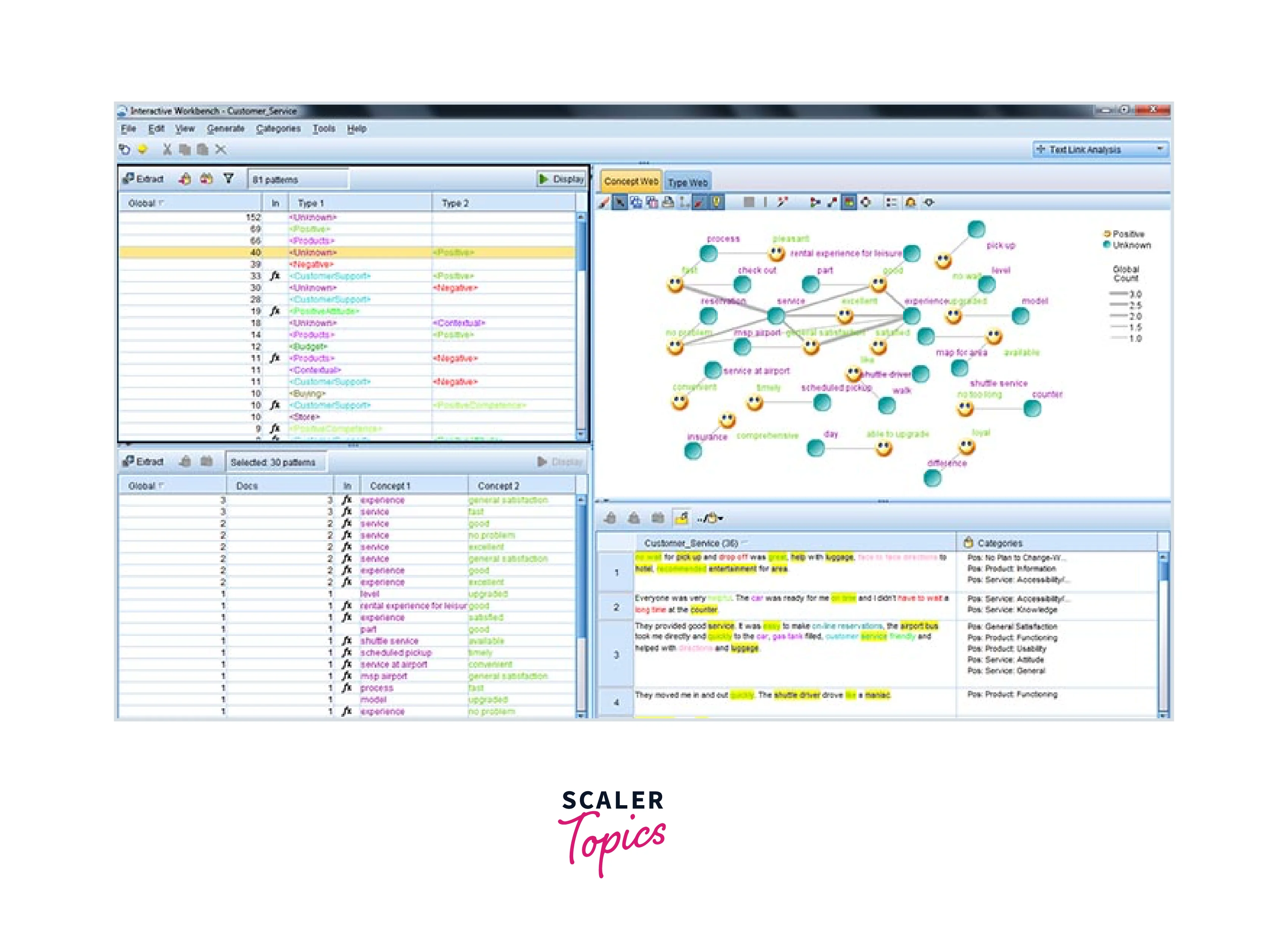
H2O
H2O.ai is an open-source data mining and machine learning platform which aims to make Artificial Intelligence (AI) technology accessible to each person. It is designed for businesses that need to perform advanced analytics on large datasets. H2O supports almost all ML algorithms and includes an AutoML feature that automatically builds and tunes machine learning models based on user data and requirements, even if users have little or little expertise in the ML space. It also supports and provides extensions in R and Python.
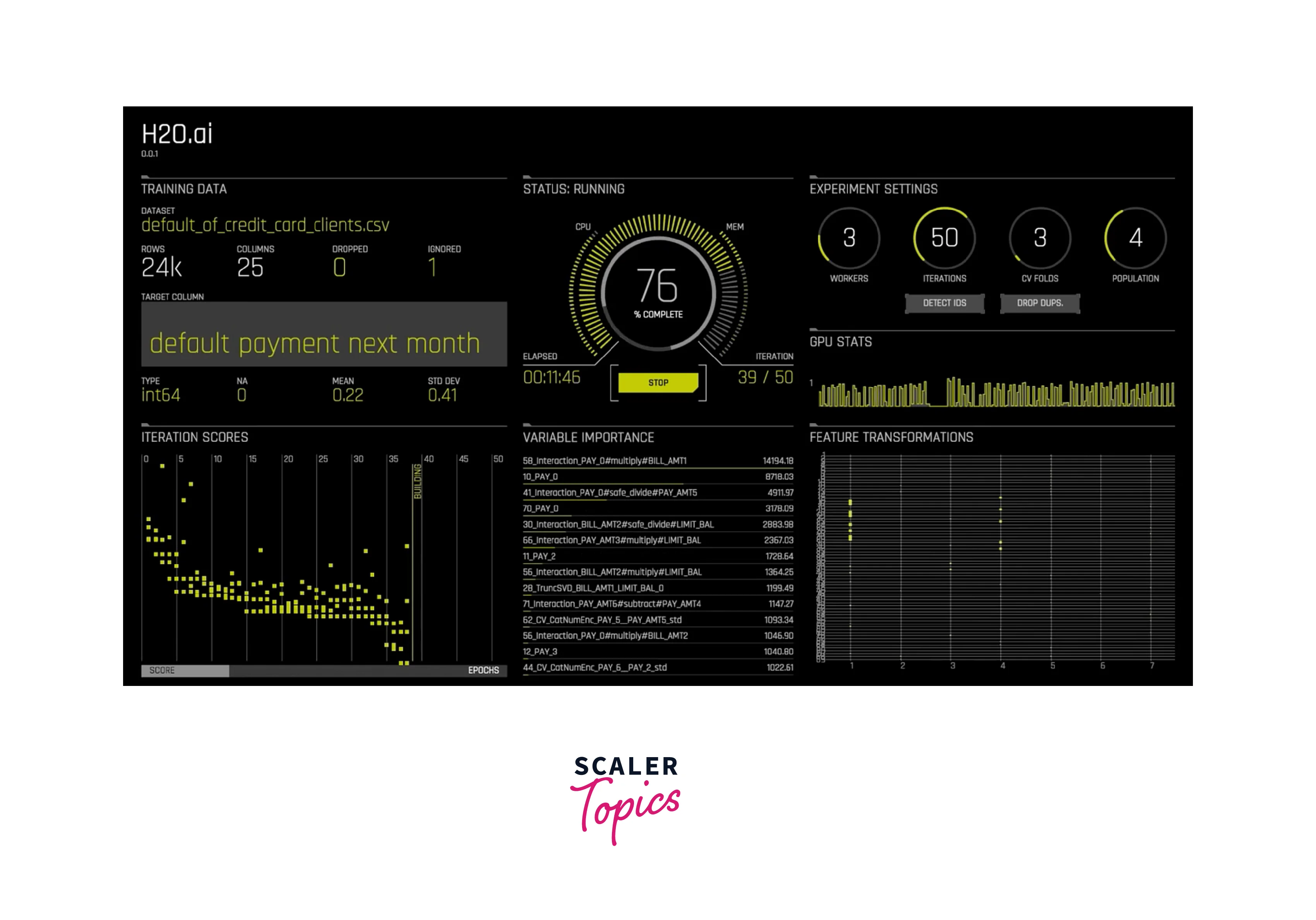
Weka
Weka (Waikato Environment for Knowledge Analysis) is a popular open-source data mining software that is widely used for research and educational purposes. It was developed by the University of Waikato, New Zealand, and is written in JavaScript, which makes it platform-independent and easy to deploy. Weka provides a graphical user interface (GUI) and command-line interfaces, allowing users to interact with the software differently. Weka can also be integrated with other software applications like R and Python to extend its functionality.
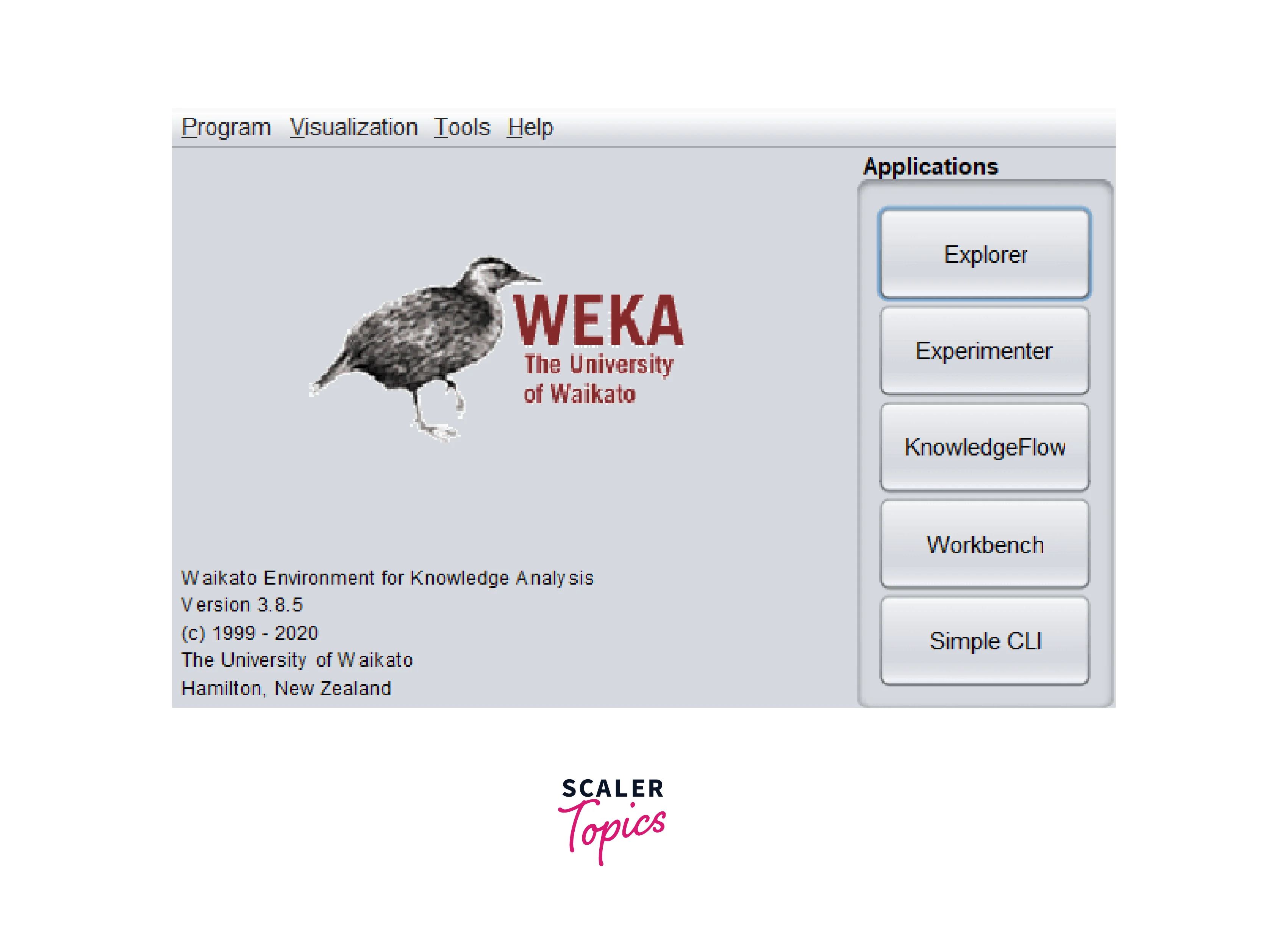
FAQs
Q: What are data mining tools?
A: Data mining tools are software applications that can perform data mining by using a wide range of statistical and machine-learning techniques to analyze and discover hidden patterns, correlations, and trends from large and complex datasets.
Q: What are the benefits of data mining tools?
A: Data mining tools help businesses improve their decision-making, discover hidden patterns and insights not apparent to the human eye, increase productivity by automating the entire data mining process, and identify business gaps to explore new opportunities.
Q: What factors to consider while determining the data mining tools?
A: The best data mining tool depends on your business needs and objective. Though, several factors to consider while determining the best suitable data mining tools include - ease of use, data size, quality, data integration, programming languages, support, documentation, etc.
Conclusion
- Data mining tools or applications can automate data mining to discover hidden insights.
- Data mining tools are essential for any organization because they allow them to extract meaningful insights from vast amounts of data that would be impossible or very difficult to do manually.
- These tools can generate valuable and actionable insights to help businesses increase profitability and gain competitive advantage.
